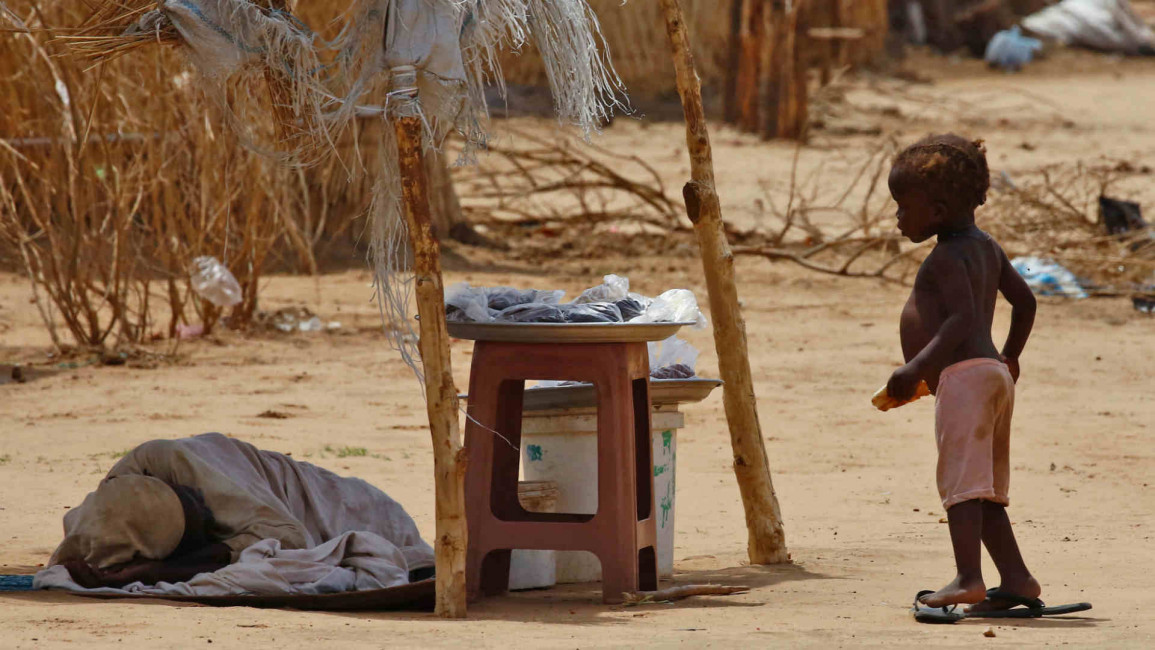
The UN refugee agency is failing to protect refugees in Sudan and Egypt
A spree of investigations has exposed rampant corruption by UNHCR staff in Khartoum, and appalling negligence among staff in Cairo. Despite the scandals, UNHCR reportedly has yet to conduct a secure internal investigation or uphold basic protection protocol.
This isn't the first controversy swirling around UNHCR in either country. Employees in the agency have told reporters that mismanagement and a general sense of apathy has long undermined its operations in Cairo and Khartoum.
However, refugees cite the lack of trust as the biggest issue. Many believe the agency isn't committed to protecting them, and it's not hard to see why.
A dangerous probe
In May, IRIN - which covers humanitarian news worldwide - revealed that UNHCR staff in Sudan were soliciting bribes from refugees in exchange for improving their resettlement chances. IRIN found that several of the people that refugees accused of corruption were still employed by the refugee agency in February.
 |
The magnitude of corruption in the office… is on an unprecedented scale |  |
A staff employee who used to be posted in Khartoum suspected that higher-ups in UNHCR were well aware of the corruption, but preferred to stay quiet.
"The magnitude of corruption in the office… is (on) an unprecedented scale… this operation is the worst in terms of corruption [and] mismanagement," the staff member told the news agency.
As allegations mounted, UNHCR's independent inspections office launched an investigation into the agency's operations in Sudan, just two days after IRIN's investigation was published. Refugees welcomed the news, hoping the probe would bring an end to rampant corruption.
But the investigation appears instead to be putting them in danger.
The inspections office sent an email to potential witnesses stating that all interviews could be shared with the accused. The notice made refugees uneasy about coming forward as many feared reprisals.
Worse still, national UNHCR staff and Sudanese government agents are reportedly intimidating witnesses into silence by threatening to cancel the resettlement file of anyone who aids the investigation. Others believe that they could be arrested or killed if they come forward.
Twitter Post
|
The allegations should compel UNHCR to prioritise the protection of refugees who help the investigation. All identities must be kept secret and key witnesses should be resettled as soon as possible. Otherwise, the probe will fail to expose the pervasive corruption and abuse that is undermining UNHCR's operations in Sudan.
But rather than protect vulnerable people, UNHCR is coordinating with dubious security agencies that abuse refugees. The National Intelligence Security Service - a Sudanese spy agency responsible for harrowing rights abuses - were given motorbikes by UNHCR to crack down on irregular migration to Libya.
The irony, of course, is striking; refugees who are unable to pay a bribe for resettlement have no alternative but to transit through Libya with smugglers.
A neglected community
In the early morning of December 30, 2005, Egyptian police forcibly removed 2,000 Sudanese refugees who were protesting a change in asylum rules outside UNHCR's main office. The police beat 27 people to death and arrested hundreds of others.
Almost 13 years later, many Sudanese refugees cite the incident as the day the community lost trust in UNHCR.
The agency's alleged negligence isn't helping to repair the relationship. In July 2018, several Sudanese refugees - who fled their homeland for defying the regime - tried to call UNHCR's helpline after Egyptian intelligence threatened them with deportation. However, the number was no longer operational.
 |
There is no mechanism where there is actually consistent reporting and keeping of stats |  |
A UNHCR employee, who wasn't authorised to speak on the record, assumed that the protection unit had changed the number, but was informed weeks later that the service had been discontinued.
"Nobody in my department was informed that we don't have a helpline anymore," the source told me.
Refugees weren't informed either. Despite the threats of deportation, UNHCR said that it was unaware of anybody who was forcibly returned to Sudan, but the truth is that the staff has no way of knowing. The same source in UNHCR confirmed that the staff in Cairo do not coordinate with the staff in Sudan to monitor deportations.
"There is no mechanism where there is actually consistent reporting and keeping of stats [of deportations]," the source said.
If true, UNHCR is unable to assess the risk of deportation of vulnerable activists, or any refugees for that matter. The lack of diligence, transparency and accountability makes it clear that UNHCR's operations in Egypt and Sudan are in crisis.
The only way out of it is to do a better job protecting refuges, not exploiting and neglecting them.
Mat Nashed is a Lebanon-based journalist covering displacement and exile.
Follow him on Twitter: @matnashed
Opinions expressed in this article remain those of the author and do not necessarily represent those of The New Arab, its editorial board or staff.




